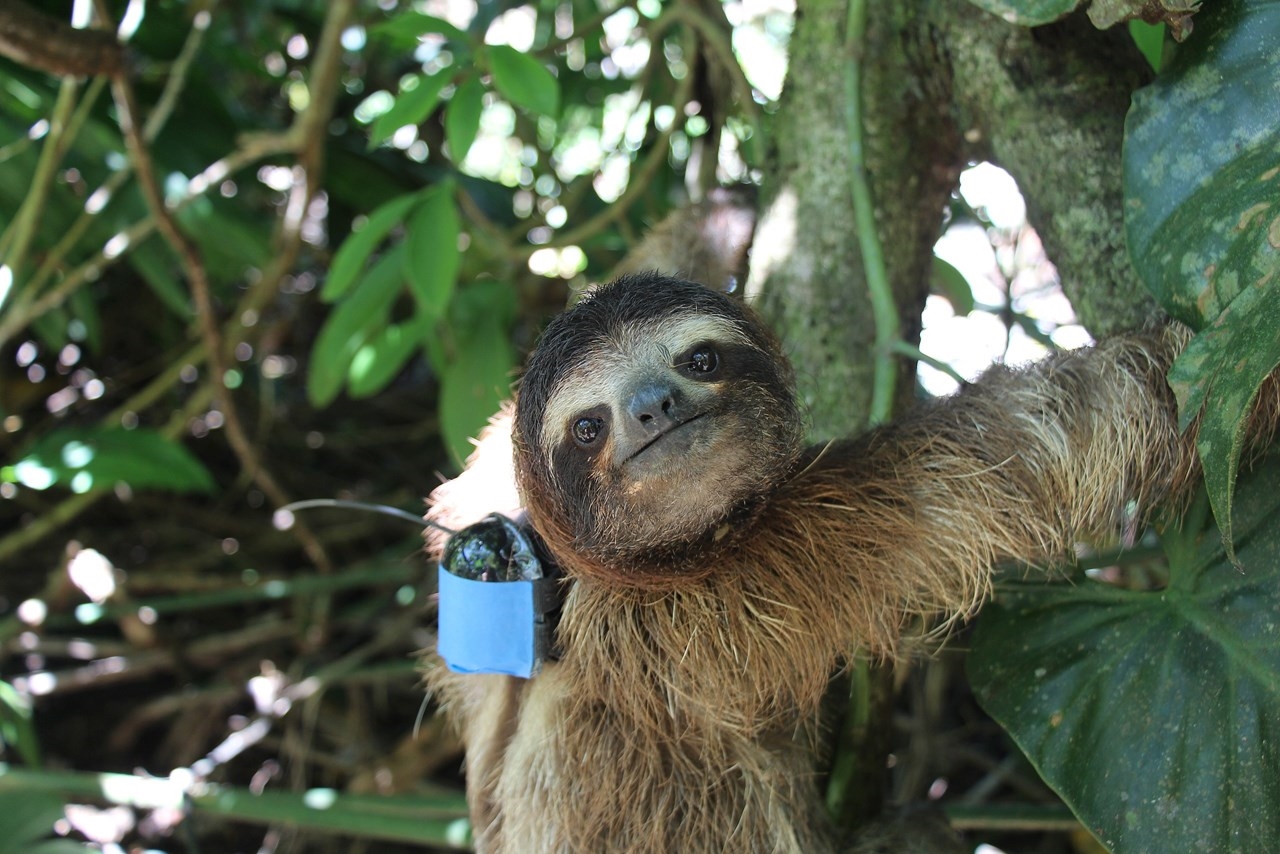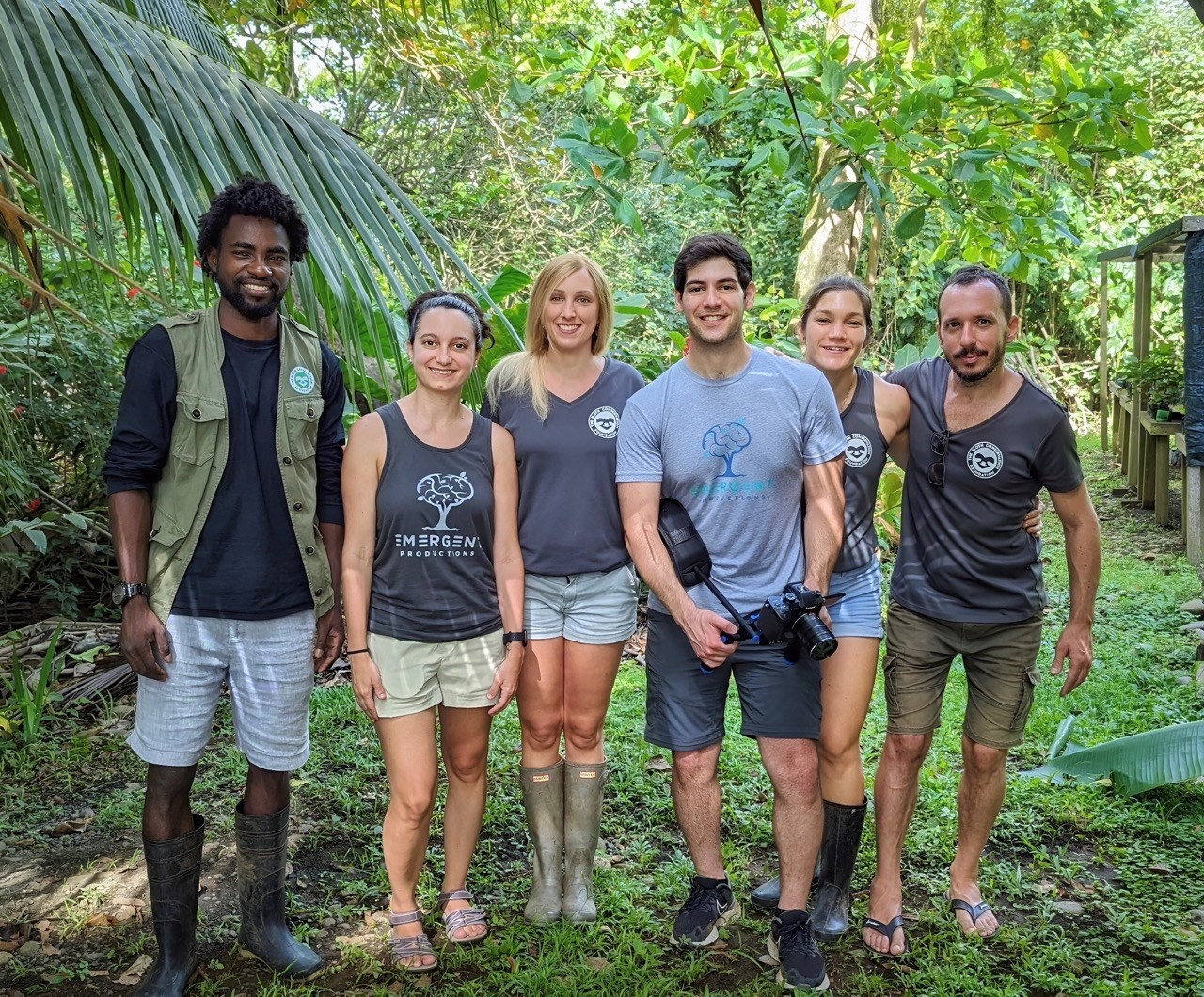 The Sloth Conservation Foundation By Cfgf20 - Own work, CC BY-SA 4.0, via Wikimedia Commons
The Sloth Conservation Foundation By Cfgf20 - Own work, CC BY-SA 4.0, via Wikimedia Commons
The Sloth Conservation Foundation is a non-profit organization based in Costa Rica, dedicated to the protection and preservation of sloths and the ecosystems on which they depend. As sloths are faced with increasing threats due to issues like habitat destruction and climate change, SloCo focus on research, education, and community-driven conservation to ensure that sloths can not only survive but thrive in their natural habitat as well as increasingly urban areas.
Early Beginnings
SloCo was founded in 2017 by British zoologist and conservationist Dr. Rebecca Cliffe, after her extensive PhD research into sloth ecology led her to uncover the numerous issues that threaten the lives of sloths in the wild.[1]
Challenges and Threats to Sloths
The destruction of the sloth’s natural habitat has become an increasingly pressing issue threatening their survival. Deforestation, due largely to urban expansion, impacts sloths as they depend so heavily on trees for their survival. Forest fragmentation occurs when large areas of forest become separated into smaller sections due to various causes including urbanization, agriculture, or wildfires.[2] Both deforestation and forest fragmentation can have devastating effects on the area’s wildlife. Sloths, for instance, use tree branches to move around safely; without them, sloths must resort to crawling across the ground, leaving them exposed to threats such as vehicles and other animals. Climate change also has a detrimental effect on various ecosystems and the wildlife that is a part of them, as temperatures increase and rainfall becomes less predictable.
Conservation
A huge part of what SloCo do is finding solutions to the challenges that sloths face. To tackle forest fragmentation, for instance, SloCo plant trees to restore areas of the forest that have been destroyed. They also install Sloth Crossing wildlife bridges over areas where there are no longer branches for the sloths to use to climb, which prevents them from having to crawl along the ground. Atop the bridges heat and motion sensor cameras are installed, allowing SloCo to gather data about how often and which species are using the bridge.
An aspect of SloCo’s work that sets them apart from many other conservation organizations is their community-driven approach to conservation. As well as trying to preserve and restore the sloth’s natural habitat, SloCo work hard to implement sustainable strategies which enable sloths to thrive within increasingly urban landscapes. As part of their Connected Gardens initiative, SloCo install sloth crossings in locals’ gardens at no expense to the property owner. Efforts like this are particularly important as they not only ensure the survival of sloths in the area but allow the local communities to continue in their development and earn a living from their land.
Contributions to Science and Research
SloCo’s initiatives are largely based on Dr. Cliffe’s findings throughout her many years of research into the behavior of sloths as well as the issues that threaten their survival. Dr. Cliffe, along with the team at SloCo continue to fund, carry out, and publish important research into sloth biology and ecology.
One of their current research projects, The Urban Sloth Project, seeks to compare the behaviors of sloths living in natural, undisturbed habitats to those living in more urban areas. However, little is known about sloths’ behavior in more rural areas, as they are very difficult to track. As their movements are so slow, sloths have adapted to become near impossible for their predators (and humans) to spot. In order to gain a greater insight into their behavior, SloCo use a range of technology including Very High Frequency (VHF) collars, Sloth Backpacks, and GPS trackers. More recently, they have begun trailing the use of drones to capture thermal images.[3]
VHF collars are very common in the world of animal tracking; they are lightweight, do not impede on the animal’s typical movements or behaviors, and allow scientists to view the animal’s movements live throughout the data collecting proportion of their research.[4] SloCo’s sloth backpacks were designed by Dr. Cliffe as part of her PhD research project, which was the longest recorded study into sloth ecology.[5] The backpacks contain a small device called a Daily Diary Data Logger/micrologger (DDDL), which is able to track several different aspects of the sloth’s behavior such as where they are, activity levels, energy expenditure, body movements, temperature, and humidity.[6]
 By Cfgf20 - Own work, CC BY-SA 4.0, via Wikimedia CommonsA three-fingered sloth (Bradypus variegatus) being monitored as part of Dr. Rebecca Cliffe's Sloth Backpack Project.
By Cfgf20 - Own work, CC BY-SA 4.0, via Wikimedia CommonsA three-fingered sloth (Bradypus variegatus) being monitored as part of Dr. Rebecca Cliffe's Sloth Backpack Project.
Learn more about SloCo’s many research projects and contributions to sloth science here.
Sloth School
Through their education outreach program, aptly called Sloth School, SloCo hope to increase conservation awareness and engagement in the young people that will become the next generation of conservation heroes. By learning more about wildlife and the challenges that face beloved species like the sloth, young people are more likely to become passionate about solving those challenges and protecting the planet we all inhabit. SloCo have a range of workshops, both virtual and in local schools, as well as a number of free educational resources.
Access those here.
Bridging Fragments
A short documentary about The Sloth Conservation Foundation, Bridging Fragments, is the first place winner of the Portrait of an Organization category at the 2024 MY HERO International Film Festival. The film was directed by Sonny DePasquale through his non-profit organization, Emergent Productions. Emergent Productions is a Florida-based organization using digital storytelling to promote conservation and highlight the individuals and organizations working to protect the environment.
 Sonny DePasquale, with permissionSonny DePasquale (center right) with Dr. Rebecca Cliffe (center left) with members of both The Sloth Conservation Foundation and Emergent Productions' teams.
Sonny DePasquale, with permissionSonny DePasquale (center right) with Dr. Rebecca Cliffe (center left) with members of both The Sloth Conservation Foundation and Emergent Productions' teams.
You can watch Bridging Fragments here.
Read more about the film and its creator here.
Conclusion
The Sloth Conservation Foundation's approach to conservation, combining habitat protection, research, and community engagement has already made a significant impact on the sloth population in Costa Rica. Through their various innovative projects, SloCo are implementing sustainable strategies that ensure both the sloths and the people living in these increasingly urban areas can not only survive but thrive.
Explore The Sloth Conservation Foundation website here.
[1] https://slothconservation.org/about-sloco/sloco-overview/
[2] Kogut, Peter. Forest Fragmentation: Far-Reaching Effects and Remedies. [Online] Available https://eos.com/blog/forest-fragmentation/. 2023.
[3] https://slothconservation.org/collars-backpacks-data-loggers/
[4] Ibid.
[5] Leeming, Jack. Slow science: how I’m protecting sloth species. [Online] Available https://www.nature.com/articles/d41586-022-01963-x. 2022.
[6] https://slothconservation.org/collars-backpacks-data-loggers/
Page created on 10/4/2024 5:32:28 PM
Last edited 11/20/2024 4:24:27 PM
